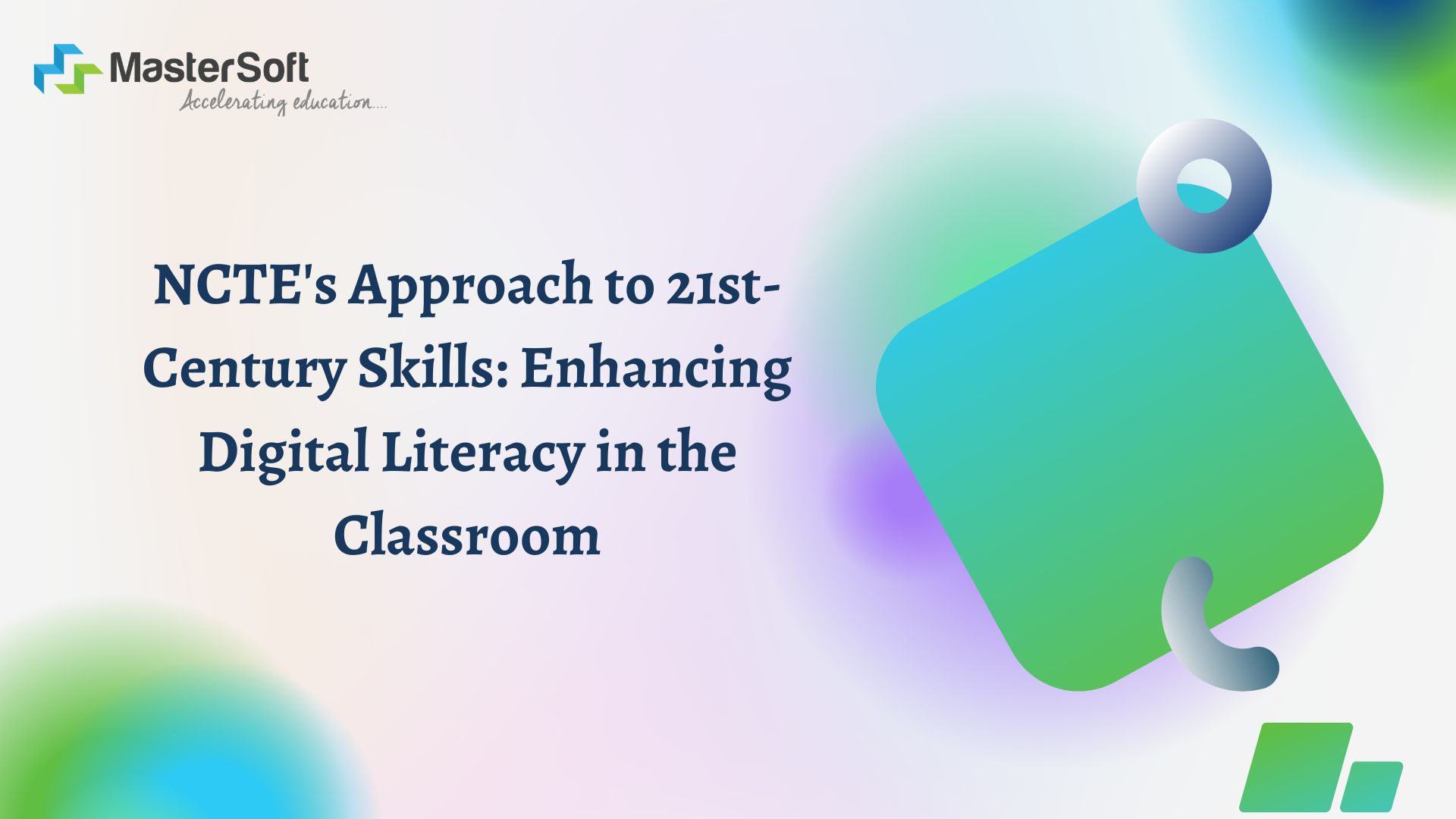In the rapidly evolving landscape of education, the National Council of Teachers of English (NCTE) plays a pivotal. Role in shaping the pedagogical approaches that prepare students for the demands of the 21st century. As technology continues to permeate every aspect of our lives, cultivating digital literacy has become imperative. This blog explores NCTE’s approach to 21st-century skills, particularly focusing on the integration of digital literacy in the classroom.
Understanding Digital Literacy:
Digital literacy is no longer an optional skill; it is a fundamental aspect of navigating the modern world. NCTE defines digital literacy as the ability to use, analyze, and critically evaluate information in various digital forms. This encompasses a wide range of skills, including but not limited to, online research, digital communication, information literacy, and media literacy.
NCTE’s Framework for 21st-Century Skills:
NCTE framework for 21st-century skills emphasizes the integration of digital literacy into the curriculum, recognizing its role in preparing students for the challenges of the digital age. The framework identifies key skills such as critical thinking, collaboration, creativity, and communication, all of which are closely intertwined with digital literacy.
Digital Literacy and Critical Thinking:
In today’s information-rich society, critical thinking is paramount. NCTE encourages educators to develop strategies that help students critically assess digital content, distinguishing between reliable and unreliable sources. Teaching students to question information, verify facts, and think critically about the media they consume are essential components of NCTE’s approach to digital literacy.
Collaboration and Digital Literacy:
The collaborative nature of the digital world is another focal point in NCTE’s approach. The ability to work effectively in teams, both in-person and virtually, is a vital 21st-century skill. Educators are encouraged to incorporate collaborative digital projects that promote teamwork and problem-solving. Platforms for virtual collaboration, online discussions, and multimedia projects are integrated into lesson plans to enhance students’ digital literacy and collaborative abilities.
Creativity and Communication in the Digital Sphere:
NCTE recognizes the importance of nurturing creativity in students, encouraging educators to leverage digital tools to enhance creative expression. From multimedia presentations to digital storytelling, students are provided with opportunities to showcase their ideas in innovative ways. Additionally, effective communication in the digital age involves understanding various digital platforms, netiquette, and the ability to craft clear and compelling messages.
Information and Media Literacy:
With the deluge of information available online, the ability to navigate and evaluate sources is crucial. NCTE’s approach emphasizes the development of information and media literacy skills, teaching students to assess the credibility of sources, discern bias, and synthesize information from various digital outlets. By incorporating these skills into the curriculum, educators empower students to become discerning consumers and creators of digital content.
Professional Development for Educators:
To effectively implement NCTE’s approach to digital literacy, ongoing professional development for educators is essential. NCTE provides resources, workshops, and training programs to help teachers stay abreast of the latest digital tools and pedagogical strategies. This commitment to professional development ensures that educators can confidently integrate digital literacy into their classrooms.
Challenges and Considerations:
While NCTE’s approach to 21st-century skills and digital literacy is commendable, it is not without challenges. Limited access to technology, the digital divide, and the need for continuous adaptation to emerging technologies pose hurdles. NCTE addresses these challenges by advocating for equitable access to technology and supporting policies that bridge the digital divide.
Conclusion:
In an era defined by rapid technological advancements, NCTE’s approach to 21st-century skills stands as a beacon guiding educators toward a future-ready education. Digital literacy is not just a skill; it’s a mindset that empowers students to navigate the complexities of the digital world.
By integrating digital literacy into the curriculum, NCTE ensures that students are not just consumers but critical thinkers, collaborators, and creators in the digital age. As the educational landscape continues to evolve, NCTE remains at the forefront, shaping the narrative of education that prepares students for the challenges and opportunities of the 21st century.
As of my last knowledge update in January 2022, I don’t have specific details about the National Council of Teachers of English’s (NCTE) approach to 21st-century skills or its initiatives for enhancing digital literacy in the classroom. However, I can provide you with general information on how educational organizations and institutions often approach digital literacy.
Digital literacy in the 21st century encompasses a range of skills that go beyond basic computer literacy. It involves the ability to use technology to find, evaluate, create, and communicate information effectively. Here are some common strategies and principles that educational organizations often focus on to enhance digital literacy in the classroom:
- Integration of Technology: Incorporating technology into various aspects of the curriculum to expose students to digital tools and resources. This includes using computers, tablets, interactive whiteboards, and other devices.
- Critical Thinking and Evaluation: Emphasizing the development of critical thinking skills, including the ability to evaluate the credibility and reliability of information found online. This involves teaching students to be discerning consumers of digital content.
- Media Literacy: Addressing the broader concept of media literacy, which involves understanding how various forms of media convey information, influence opinions, and impact society. This includes analyzing digital media such as videos, images, and social media content.
- Digital Citizenship: Teaching students about responsible and ethical use of technology. This involves educating them about online safety, respectful communication, and the consequences of digital actions.
- Collaborative Learning: Promoting collaborative projects that require students to use digital tools for communication, research, and presentation. This helps develop teamwork and communication skills in a digital context.
- Professional Development: Providing teachers with ongoing professional development opportunities to stay updated on the latest educational technologies and pedagogical approaches for integrating digital literacy into their teaching practices.
- Adaptability: Recognizing the rapid evolution of technology and encouraging an adaptive mindset among students. This involves preparing them to learn and adapt to new digital tools and platforms as they emerge.
To get the most accurate and up-to-date information on NCTE’s approach to digital literacy. I recommend checking their official website, publications. Or contacting the organization directly for the latest resources and initiatives in this area.




